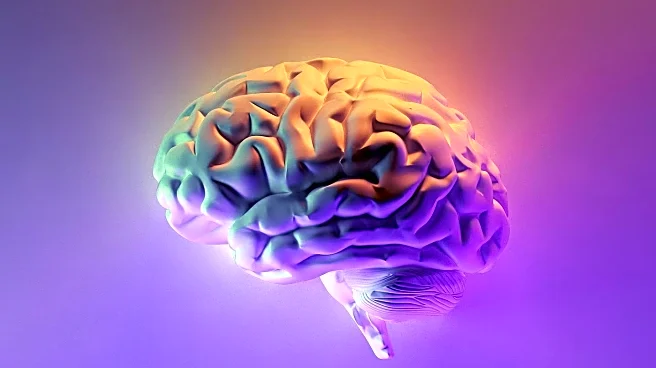What is the story about?
What's Happening?
Research from the University of Wurzburg in Germany has demonstrated that the human brain can 'swivel' its focus to prioritize sounds from different directions, similar to how some mammals physically pivot their ears. Using mobile EEG technology, the study found that as individuals move, their brain adjusts to enhance sound processing, potentially aiding in navigation and safety. This internal auditory adjustment may be an evolutionary adaptation to dynamic environments.
Why It's Important?
The findings offer insights into how movement influences brain function, with implications for designing navigation aids for visually impaired individuals and improving hearing aids. Understanding the brain's ability to adapt to sound direction could lead to advancements in assistive technologies, enhancing quality of life for those with sensory impairments. Additionally, the research highlights the cognitive benefits of outdoor exercise, suggesting that movement is integral to brain health.
Beyond the Headlines
The study underscores the interconnectedness of movement and cognition, suggesting that physical activity is crucial for optimal brain function. This perspective may influence public health initiatives promoting outdoor exercise as a means to enhance cognitive health. The research also opens avenues for exploring how sensory processing can be leveraged in educational and therapeutic settings to improve learning and rehabilitation outcomes.
















